Strata Title or Body Corporate Management. What’s it all about?

In a previous article, we explained what Strata Title is: it is an ownership structure established for apartment buildings. ‘Strata’ is another word for a multi-level building. We covered what a Strata Plan is and that once it is registered with the government the Owners Corporation comes into being. Click here if you want to read the original article.
But what happens with a Strata Title building, or Strata Scheme once it has been established? What is required to effectively and efficiently manage a building? Who manages the building? How is strata title managed? In this article we will shed some light on Strata Title Management, also known as Strata Scheme Management, or Body Corporate Management.
Please note: this article does not reflect the NSW Strata Schemes Management Act 2015 which came into effect on 30 November 2016. It is based on the NSW Strata Schemes Management Act 1996. Please use this article for information only, and check with your strata manager to ensure you comply with the most up-to-date legislation and requirements.
Body Corporate vs Owners Corporation
Let us start with clearing up a common misconception: A Body Corporate is the same as an Owners Corporation. The term ‘Owners Corporation’ is the modern day equivalent, which came into use following legislative changes many years ago. Old habits die hard and hence the fact that both terms are still used today.
Self Manage or a Licensed Body Corporate Strata Manager?
Although it is not a legal requirement, most Owners Corporations hire the professional services of a licensed strata management, or body corporate management agency. Owners Corporations are entitled to manage their own affairs, however in most cases owners either do not have the required expertise, time or will to take on this responsibility.
Funding of the Strata Plan
It all starts with financial funds. An Owners Corporation must have sufficient funds available to pay the day-to-day management and operation of the building. How else will the bins be emptied and gardens kept? At the same time, money must be set aside to pay for the ongoing maintenance & repairs of the building. It is in the interest of all owners to keep the building well kept and well maintained to ensure it will appreciate in value and not the opposite.
As mentioned in a previous article, all owners in a building are required to pay Strata Levies, a typically quarterly contribution to the owners’ corporation. The exact amount is usually agreed once a year during the Annual General Meeting.
This levy normally consists of two components, sometimes complemented with a third levy:
- Administration Fund, or Admin Fund contribution
- Sinking Fund Contribution
- Special Levies
What is an Admin Fund?
The Admin Fund, covers day-to-day expenses such as cleaners, gardeners, replacing of light bulbs, and let’s not forget the management fees for the strata manager. These are typically recurring, operational expenses.
What is a Sinking Fund?
The Sinking Fund is intended for so-called capital investments, which typically benefit the building for many years. Examples are lift upgrades, a roof replacement, or repainting the building. We will cover the importance of a Sinking Fund Forecast in a future article.
What is a Special Levy?
If the Owners Corporation has to pay a debt that was not budgeted for in either the Admin Fund or Sinking Fund estimates, a Special Levy must be agreed at a General Meeting and paid to the Admin Fund. When expenses are incurred and not enough funds are available in either the Admin or the Sinking Fund, owners may agree to raise a so-called Special Levy. A special levy is usually short-term in nature. For example, many older buildings in recent years have had to upgrade their fire safety systems to meet stringent fire safety regulations. This could cost into the many hundreds of thousands of dollars. Funds many buildings simply did not have. The Owners Corporation could then agree to either take on a bank loan, or to raise special levies.
How are strata levies calculated?
Your Strata Manager usually proposes a draft budget for the financial year for the Executive Committee to review prior to the Annual general Meeting (AGM). If they are comfortable with the proposed amounts, the draft budget will be attached as an agenda item to be discussed during the AGM. During the AGM, all owners or their representatives will get to ask questions and ultimately vote on the proposed budget. Owners can vote against the proposed budget, or suggest a different budget. Once the exact budget has been confirmed, your body corporate manager will divide the agreed budget required by the Unit Entitlements. There is full transparency and your strata manager will happily answer any questions you may have. For more information on how Unit Entitlements are established, please refer to this previously mentioned article.
Strata Insurance: Building and Public Liability
Another very important function of the Owners Corporation is the annual Building and Public Liability Insurance renewal for the Strata Scheme. It protects the building against the costs of fire, floods, explosions and accidental damage. It may also cover the building for emergency repairs, provides temporary alternative accommodation in case your unit becomes uninhabitable following a flood or fire. This insurance also comes with a legal liability component and typically covers a building for $20 million.
It is important to understand that this insurance only covers Common Property. Individual owners will still need to take out personal content insurance if they wish to cover the own property. For example, in case a water leak originates from a unit above you. The strata scheme’s insurance will typically only cover the locating and repair of the water leak and any damage to common property. If your furniture has water damage this will typically need to be claimed on your personal content insurance. Strata Insurance and what exactly is and is not covered is often rather complicated and can vary from strata scheme to strata scheme. We recommend you check with your Executive Committee or your Strata Manager to ensure your property is adequately covered.
Premium Strata offers both excellent Strata Management and Building Management services. Call us today for an obligation free chat! We are happy to answer any questions you may have.
We hope you found this little guide useful. Please keep your eyes open for future articles, as we will continue to work towards making the somewhat complex world of strata management just that little bit easier to understand.
Leave us a Review
If you are a client of Premium Strata, we would greatly appreciate if you could leave us a google review of your positive experience about our team and work. If you have any feedback or require any assistance, please do not hesitate to contact us.








